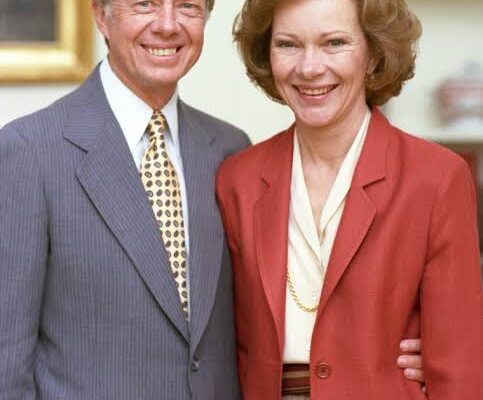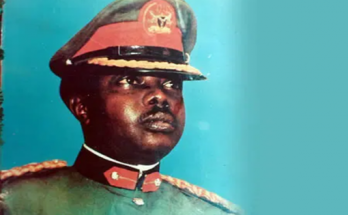James Earl Carter Jr., widely known as Jimmy Carter, served as the 39th President of the United States from 1977 to 1981.
Born on October 1, 1924, in Plains, Georgia, Carter’s life journey is characterized by a commitment to public service, diplomatic endeavors, and post-presidential advocacy.
Early life and naval career

Jimmy Carter grew up in the small town of Plains, where his family operated a peanut farm.
After graduating from the U.S. Naval Academy in 1946, Carter pursued a career in the Navy, serving on various naval vessels and undertaking responsibilities related to nuclear propulsion.
Return to plains and political ascent
In 1962, Carter left the Navy and returned to Plains due to the death of his father. This marked the beginning of his political journey.
He successfully ran for the Georgia State Senate in 1962, serving two terms before a failed bid for the governorship in 1966.
Undeterred by the setback, Carter redoubled his efforts and secured the governorship of Georgia in 1970.
His tenure as governor reflected a commitment to progressive policies, including ethics reform and racial desegregation, earning him national attention.
Presidential campaign and foreign policy
Carter’s bid for the presidency in 1976 was marked by his outsider status and commitment to moral integrity in government.
His campaign emphasized honesty and the need for a government that worked for the people.
As president, Carter faced both domestic and international challenges.
Domestically, he grappled with inflation and energy crises. Internationally, his efforts to broker peace in the Middle East, particularly between Egypt and Israel with the Camp David Accords in 1978, earned him acclaim and the Nobel Peace Prize.
However, Carter’s presidency faced setbacks, notably the Iran hostage crisis, where 52 Americans were held captive for 444 days after the U.S. Embassy in Tehran was seized.
This crisis, coupled with economic challenges, contributed to Carter’s defeat in the 1980 presidential election against Ronald Reagan.
Post-presidential years
Jimmy Carter’s life after the presidency continued to be marked by active engagement in various humanitarian endeavors.
Alongside his wife Rosalynn, he founded the Carter Center in 1982, focusing on global health, democracy-building, and conflict resolution. Notably, the center played a pivotal role in the near-eradication of Guinea worm disease.
Carter’s commitment to diplomacy and conflict resolution led him to participate in numerous international missions, including negotiating with North Korea and working towards fair elections in various countries.
Jimmy Carter: Legacy and impact
Jimmy Carter’s legacy is one of service, diplomacy, and advocacy. His post-presidential years were characterized by tireless efforts to address global challenges and promote human rights.
Despite facing criticism during his presidency, Carter’s dedication to humanitarian causes has earned him admiration and respect in the later years of his life.
Carter’s commitment to diplomacy and human welfare serves as a testament to the enduring impact that individuals can have beyond their time in office.
His life story reflects the capacity for growth, learning, and positive influence, transcending the challenges and controversies of his political career.








